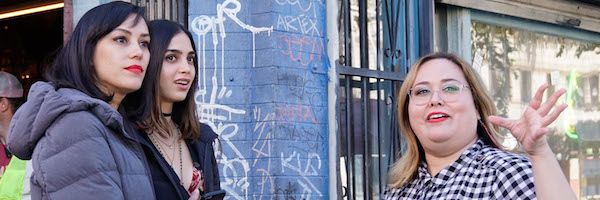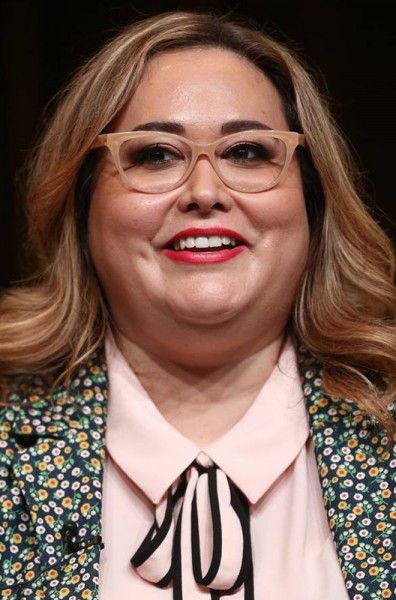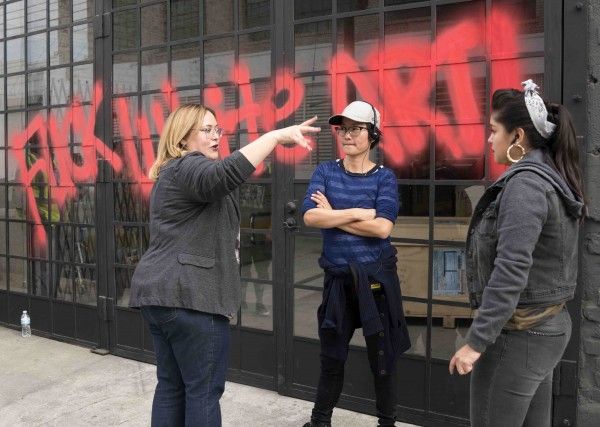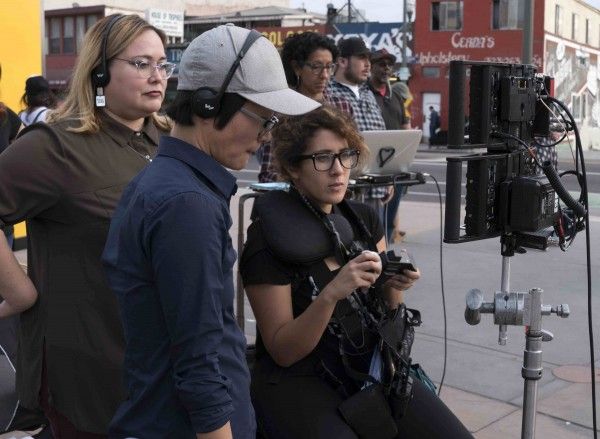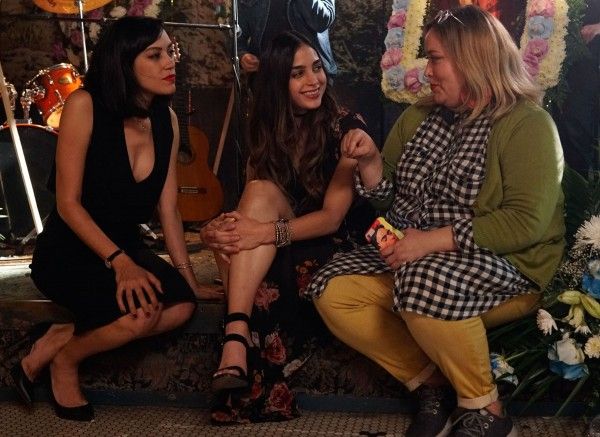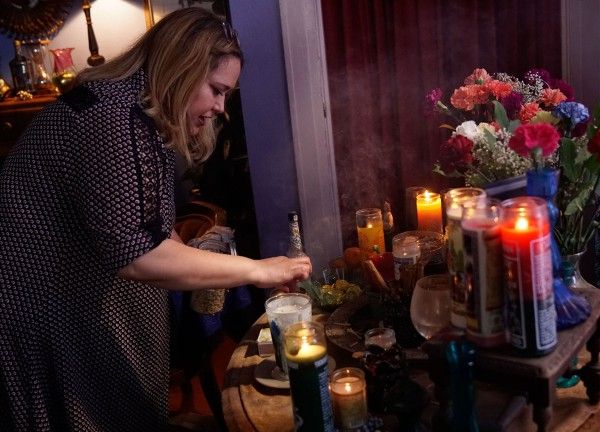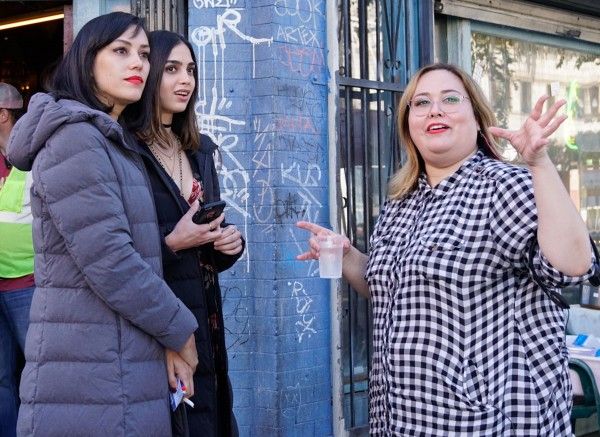From showrunner/executive producer Tanya Saracho, the Starz original series Vida will be returning for Season 2 with 10 half-hour episodes, which inevitably means more family and neighborhood drama. The story centers around two Mexican-American sisters, Emma (Mishel Prada) and Lyn (Melissa Barrera), from the Eastside of Los Angeles who couldn’t be more different from each other, but when circumstances force them to return to their old neighborhood, they find themselves dealing with a more family secrets than they ever could have imagined.
While at Starz presentation at the Television Critics Association Press Tour, Collider got the opportunity to sit down with show creator Tanya Saracho to look ahead to Season 2 and talk about the next steps for these characters, as well as what she learned from being a showrunner on the first season, providing work opportunities, relying on her team, and where things are at with the development of her Chicago-based Brujas series, which will follow four Afro-Caribbean Latinx women and using the brujeria counter-culture as a foundation.
Collider: I’m so happy to be talking to you again, now that you officially have a second season. The first season really felt like it was only the beginning of this story and that there really is so much more story to tell.
TANYA SARACHO: Those six episodes were like a three-hour pilot and you just get the story started, by the end. By the end, it felt like, “And now we can begin.” It was the prologue. Now, we have 10 episodes and I have to do a proper season. I’m learning a lot. I’m a sophomore showrunner.
If that was the prologue, how are you looking at Season 2?
SARACHO: These sisters shook on it. They basically just had a handshake. That doesn’t fix their decades long broken-ness. I don’t think we can even begin mending the broken. We have to identify it first. Also, I don’t know what your experience is, but I’ve witnessed family going into business together, and it’s a nightmare. It never works. So now, they’re business partners and one of them is very business-minded while the other is learning a lot about herself. And then, you have the personal stuff that they have to deal with, too. It was only a little bit over a week, from start to finish, so nothing has moved too far. Everyone is not too far away from where we started.
Eddy (Ser Anzoategui), especially, is a character that we only just started to get a real sense of, by the end of the first season.
SARACHO: I know! I feel like we had to deal with that, in the first season. For five episodes, you think that this traditional Latino neighborhood is so woke and so open. But don’t forget that our bodies are also sometimes not welcome by our own community. We are sometimes in danger. That needed to be said, in the first season, but I’m sorry to have left everyone with that. The fate of Eddy is still up in the air.
What’s it like to get feedback on the show, especially on social media?
SARACHO: People have their opinions. We only had three hours of television. Now, I don’t want to let anybody down. That’s my own personal little struggle. People really attached themselves to the characters and felt represented in a way that a lot of brown, queer, young, Latinx people where like, “I’ve never seen myself reflected like that.” There’s so much responsibility with that. I don’t know the real answer. I do read things, but it doesn’t affect the story. It affects the conversation in the writers’ room. Do we have a responsibility to tell this story? We’ll have five hours of TV, and we, as Latinos, queers and women have a lot of issues. There are so many layers. They’re a family. They’re sisters. You start there, and then you have the whole world outside.
How much of what you’re going to be doing with Season 2 is what you thought you’d do with Season 2?
SARACHO: For first season, I knew where we were gonna go. I knew how it was gonna end. The second season started when we were still editing Episode 6, so I didn’t have the time to dream. I love how this season has revealed itself. The characters are shouting out for their storylines, so we’re following them. I had an idea for a big life event for one of them, and then it didn’t go. That wasn’t where the character told us to go. I’m not talking about the actor, I’m talking holistically. I have a writers’ room that really believes in that, and Starz has been great. We pitch them something at the top, and then, upon more character whispering, we’re like, “This feels more organic.” So, we’re going where they lead us.
Have you also started thinking about new characters that you’re going to add?
SARACHO: We have Nico coming. We have consultants this year. Last year, our consultants were our neighborhood activists, and this year, we have bar flippers who take bars that are failing and flip them. They did a business plan for us, and it was so interesting, in the most frightening way. When you read this three-year business plan, these guys are never getting out from the hole. It doesn’t look like they can, but that’s story right there. I was fascinated by them, so we have a celebrity bartender that takes on restaurants and bars. Nico will be played by Roberta Colindrez, and I’m excited for her. Because we worked together in the theater, I’ve known her for a long time. She’s lovely, and I’m so excited that she’s coming on board. The world expands, but at just the right pace.
What’s it like to be in a position where you can give opportunities, not just to these actors, but to the writers, the directors, and so much of your crew?
SARACHO: I know! It’s such a position of privilege, so I better not misuse it. “With great power comes great responsibility.” I started this with a mission, to tell a true-to-life story of Latinidad, and the way I’m telling it is also important. For so long, we have not been allowed to have our own narratives. It’s so infantilizing when they’re like, “We’ll tell your story for you.” Even if you end up not being a stereotype, you were not at the helm of that. You were not in control of your own narrative. For decades, Latinas have not been in control of our own. That’s dangerous for the perception of a people in the national narrative. If you’re in a state that doesn’t have a lot of access to people like me, you have your opinion of whatever you see on the news and in the media, and that’s dangerous. I’m very committed to my cinematographer. She’s Latina and she’s never run a unit before, so I gave her that shot because someone gave me a shot. I’m committed to my composer, who is the only Latina in the Academy for Composers. The prism of our eyes is the way this world can get built, authentically. I protect that a lot. The actors felt so comfortable with the way we built the sex scenes because none of them had ever done sex or nudity. Ser did that harrowing bathroom scene. Also, we’re giving some Latinas their first TV directing opportunity. That’s important because that’s a hard thing to break into. When we looked at the list, I could count the Latinas with one hand, and that’s crazy. They’re in high demand because they’re good. It’s great to be a nexus and an entry point, for a lot of these positions that are behind the screen, where it’s so hard to get in. For me, I don’t know how I’m here. It’s crazy, but we’re here now.
What did you learn about being a showrunner, by doing the first season? What did you learn your strengths are?
SARACHO: I learned that I’m more decisive than I thought. In real life, I’m like, “Well, what if . . .?” I just question, and I was afraid of that coming out too much. But I said yes and no without much though, which might be dangerous, but that’s the only way to do it, when the clock is ticking. I didn’t know I had that fortitude of spirit. I was so scared about, “If I have to fire someone, what do I do?” But, you buck the fuck up. I was like, “I am capable.” So, it was nice to know that I’m strong enough because I was doubting myself when we started.
Did you also have to learn to rely on your team?
SARACHO: Oh, yes, but they make that easy. We spoke the same language. I’ve directed 16 plays, and that’s my favorite part of what we do. They make it easy. We found some amazing people. There’s no way you can do it yourself. I don’t know how people can be so controlling because you stop the ship when you’re that controlling. There’s stuff that I have to decide on, but there’s stuff that other people are more qualified to do.
And you’re already actively developing other TV shows, starting with Brujas.
SARACHO: Well, that is on hold while we start production [on Season 2]. We started, and then I had to go and do Vida. Vida is my vida. Vida is my life. But the more I stay away from [Brujas], the more I’m like, “Wait, wait, wait! I shouldn’t do that! What if I do this?” It might be a little dangerous because we might end up with a completely different thing. Right now, the story is shifting. But I’m excited for Brujas, about the Afro-Latina women in Chicago. I’m just excited, if it happens, to go home to Chicago and to shoot with my friends. The Chicago acting community is flawless. They’re mostly Chicago theater actors, and they’re so amazing. I’m excited. That’s where I had my theater company. There’s only five Latina shows on TV right now. We need more networks to be like, “They exist.” You just need to amplify those voices, so that the stories get told. They’ve cut so much stuff in development, for years and years. Maybe now they can listen with the right ear. We’re 18% of this country, and five shows out of 520 is not 18%. It's not even 1%. So, I just want us to take up more space.
All episodes of Vida available to watch on Starz.

